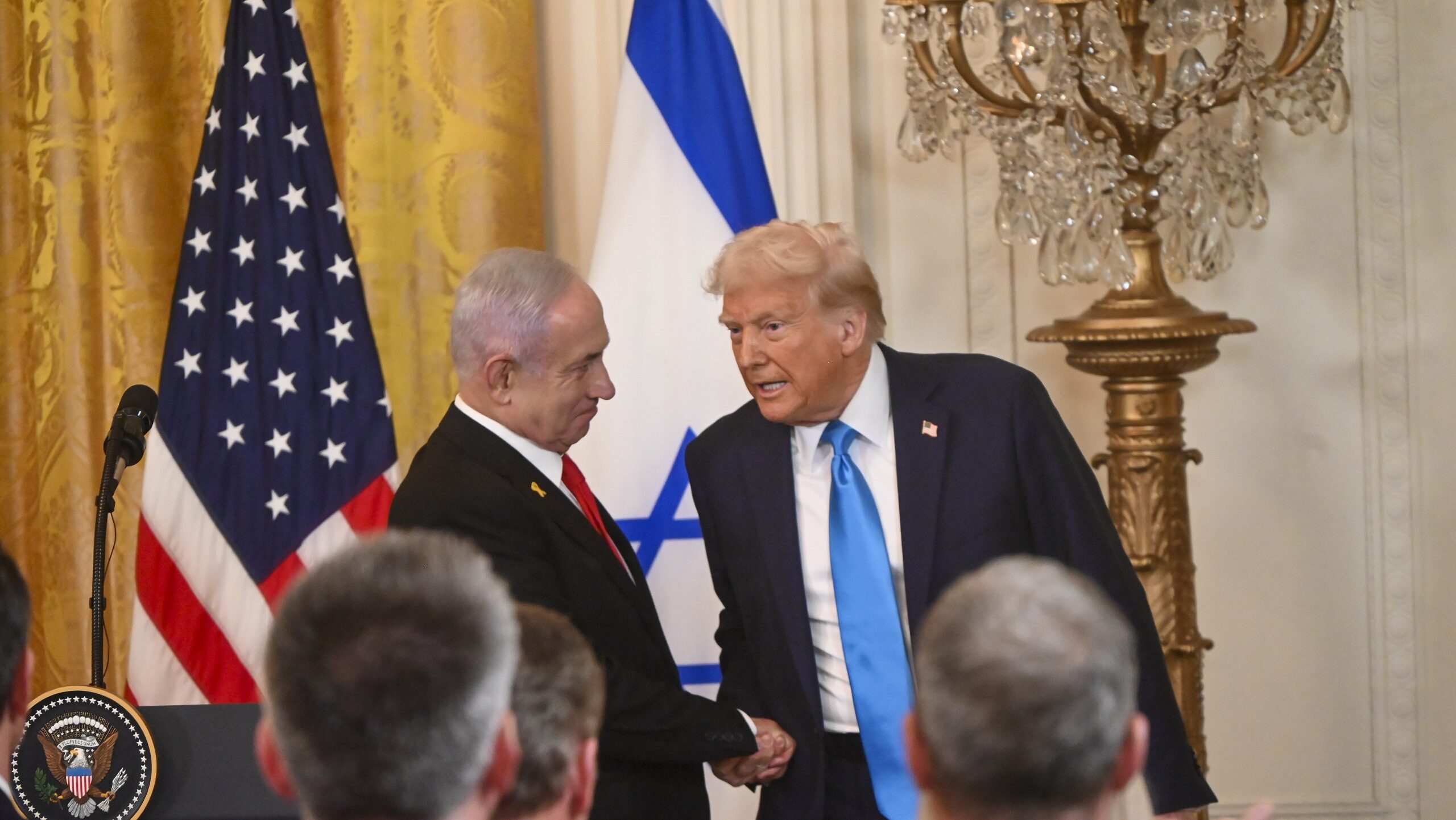Opinion – Can Trump’s Bombshell of the Century Work?
The US president’s bold plan to manage Gaza has raised questions about feasibility, international support, and its alignment with Israeli policy
President Donald Trump stunned the world with a high-stakes sales pitch, casting the US as Gaza’s ultimate buyer in a deal aligned with Israeli Prime Minister Benjamin Netanyahu’s vision of a “new Middle East.” Beside him, Netanyahu played the loyal partner in a spectacle that set social media ablaze.
But before this bold real estate maneuver is sealed, a critical question must be asked: Where are the voices of the world’s half-billion Arabs?
Pressing questions abound: Can this grand scheme even work? Who owns Gaza? Will Hamas disarm? Does the US intend to manage Gaza indefinitely? Who will pay for the costly plan? And what happens to the lucrative gas fields off the Gazan coast?
If Israel accepts the assignment to relocate Gazans despite international accusations of ethnic cleansing, why would it then hand the territory over to the United States? Conversely, if the plan has international support, it could serve as a catalyst for expanding the Abraham Accords.
The Saudi normalization deal—the crown jewel in President Trump’s broader Middle East strategy—will come at an immense cost. Hamas will not relinquish control of Gaza without a bloody fight, and the remaining Israeli hostages will become bargaining chips in the final stretch of negotiations, likely under a fragile ceasefire. Meanwhile, Palestinian Authority President Mahmoud Abbas, who does not want Hamas ruling Gaza, has just found himself with less political ground—unless the US president has quietly offered him a quasi-state as part of the deal. But Hamas will not relinquish its control easily.
The US president only mentioned Palestinian statehood when pressed on whether Saudi Arabia had insisted on it as a condition for normalization with Israel. His response was a firm “no.”
Meanwhile, Iran-backed terrorism within the West Bank has largely been overlooked since the war between Israel and Hamas began. Only recently has Israel’s battle-weary military begun focusing on escalating violence in cities like Tulkarem and Jenin.
President Trump’s surprise announcement may also play into the hands of extremists. The Houthis, who have held the Red Sea hostage, may use it to intensify their “Death to America, Death to Israel” rhetoric. The president has repeatedly stated that he does not want war—”no more wars”—but could his Gaza land plan drag US naval ships back into the Gulf?
This holiday season, give to:
Truth and understanding
The Media Line's intrepid correspondents are in Israel, Gaza, Lebanon, Syria and Pakistan providing first-person reporting.
They all said they cover it.
We see it.
We report with just one agenda: the truth.


This move risks giving further ammunition to the region’s bad actors. It could also stoke global antisemitism, which has surged by as much as 400% in some countries.
To be fair, previous diplomatic efforts—Camp David, the Arab Peace Initiative, multiple wars, and two-state solutions—have all failed, caught in a cycle of death and destruction. Perhaps the president was signaling the end of the two-state paradigm altogether. But that is not what he said.
Instead, President Trump, the consummate salesman, hammered his message home in a relentless PR push: “You can’t live in Gaza right now. … Who would want to go back?” The surrounding countries must instead find “a beautiful area to resettle people permanently in nice homes.” But where? And who will ensure this happens?
You can’t live in Gaza right now
The United States just approved a $1 billion arms deal. Is this an incentive that the US commander-in-chief will utilize in President Sisi’s upcoming trip to Washington? What else can the American president hold over Sisi and Jordan’s King Abdullah?
Netanyahu’s body language in the Oval Office suggested confidence—even smugness—as the Israeli press grilled him on the relocation of Gazans. He seemed fully aware that this declaration was coming. Then came the showstopper: The president, standing before the White House press corps, declared that the US would take over Gaza’s beautiful shores and build a “Riviera of the Middle East.”
I think it’s something that could change history
In that moment, speculation about a rift between the American president and Israeli prime minister disappeared. The two leaders appeared to have long been aligned on this controversial vision. Netanyahu, eager to elevate the moment, declared, “I think it’s something that could change history.”
Could Gaza become a new Singapore on the Mediterranean? If so, the Arab-Israeli landscape would be dramatically altered. Saudi Arabia, for example, sees normalization with Israel as a means to enhance trade in oil, defense, and technology. However, the Palestinian issue remains a major roadblock.
His goal is to establish himself as a regional leader and advance Vision 2030
MENA expert Dr. Nicolai Due-Gundersen noted that Crown Prince Mohammed bin Salman (MBS) is shifting focus from Palestine to Saudi Arabia’s economic ambitions. “His goal is to establish himself as a regional leader and advance Vision 2030,” he said.
Due-Gundersen explained that the crown prince aims to make Vision 2030 apolitical, prioritizing employment, development, and cultural expansion over regional conflicts. This shift is evident in Saudi public discourse, where younger Saudis are encouraged to focus on economic progress rather than past political entanglements.
It is too early to predict whether the US president’s plan can succeed. Key elements are already being walked back. For example, while the president suggested the displacement of Gazans would be permanent, administration officials later said any relocation would be only temporary. Saudi Arabia has stated there will be no normalization without a two-state solution—contradicting President Trump’s claims to the contrary. So which version of reality will prevail?
At this stage, a Nobel Peace Prize for the American president, Israeli prime minister, and Saudi crown prince is far from guaranteed. Bringing all necessary players to the table will require bold, unconventional moves. If Egypt, Jordan, or other nations agree to resettle Gazans, if West Bank Palestinians are placated, and if Saudi Arabia publicly endorses President Trump’s vision, then—maybe—this bombshell announcement could gain traction.
Perhaps, despite the controversy, this is the shock the region needs to finally break the cycle of conflict and move toward a more stable, peaceful Middle East. It will take more than rhetoric and real estate deals, but if the right players seize this moment, a different future may yet emerge.
But it would take a tectonic shift in Arab political thinking for Trump-branded skyscrapers to rise along Gaza’s battered coastline.


